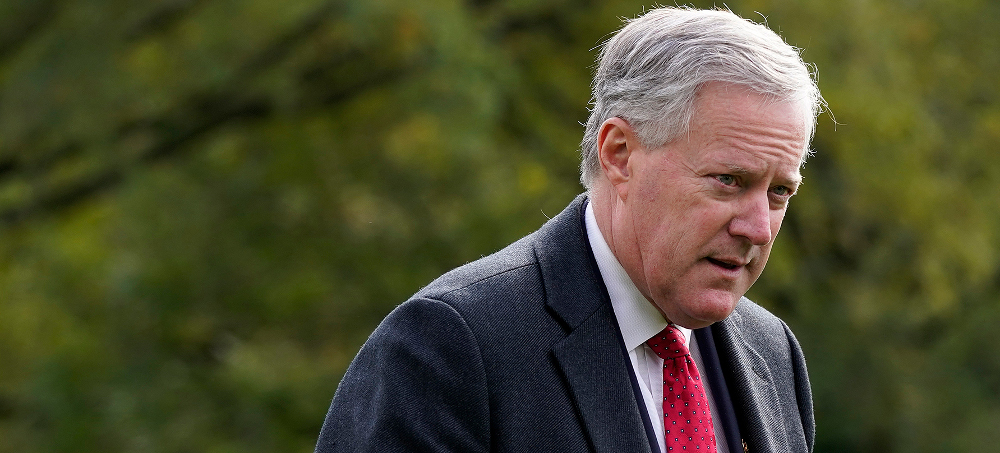Live on the homepage now!
Reader Supported News
You go on your app and it knows your location and you punch in “Where to” and in less than a minute it tells you that Muhamed will pick you up in three minutes and the charge will be $26.78 and three minutes later Muhamed rolls up. The cost goes to your credit card on file along with your designated tip. Muhamed is from Libya and doesn’t know the city like the old cabbie does but the lady in the dashboard gives him precise directions and he does very well. What’s not to like?
Free enterprise can be brutal. In New York, a couple years ago, owners of taxi medallions, the city-issued license to own a cab, conspired to drive the prices up, and corrupt lenders offered loans at high interest rates, and thousands of drivers got taken to the cleaners, just as the pandemic hit and Uber and Lyft were growing, and the Times reported nearly a thousand bankruptcies and eight driver suicides in one year.
So when I’m in New York, sometimes I hail a cab, out of socialist sympathy, but Uber and Lyft have come up with a better light bulb.
Capitalists say that you have to drown a few puppies in order to achieve progress, but I come from Minnesota, which is a socialist state in the sense that we identify with victims and feel guilty about whatever success we’ve achieved. In New York, success is admired and people love to go see Broadway stars on stage and world-famous sopranos at the Met and we expect the Philharmonic to be up to international standards. In Minnesota, we feel sorry for the sopranos who failed the audition, especially if they come from a dysfunctional family of modest means that couldn’t afford to hire a first-rate music teacher. We would support an opera company devoted to hiring disadvantaged singers rather than the shining stars and why not have them perform operas that have been rejected by other companies? Enough with the Puccini and Mozart, those guys have had their chance, let’s do the work of Tiffany Tufford and DuWayne DeVore. This strikes us as a Christian thing to do.
If you search through the homeless encampments and the treatment programs for substance abuse, you will find folks who used to play musical instruments, and why not hire them for your orchestra rather than privileged children from middle-class homes who took lessons from pros and majored in music at Juilliard?
Elitism is suspect in Minnesota, and this new opera company — let’s call it The Progressive Opera — would find a good deal of support. People would donate money to democratize opera who likely would not attend performances. This is where the idea of socialist art falls down. Art is visceral, it lifts you up or it lets you down, you can’t talk yourself into loving it. Puccini’s Madame Butterfly is so great that even if performed by the Grand Forks Opera Company by Lutheran singers, it will move you, and when you hear “Un bel dì” you will feel the tragedy, even if it’s Allison Nelson and not Anna Netrebko. But when they dump Puccini in favor of a justly neglected composer, the ship sinks. Nobody wants to sit in an auditorium and watch crappy shows except the relatives of people on stage and they’re only good for one performance.
So you’d need to give away sets of glassware or sell lottery tickets and the winner gets a trip to New York to see Bruce Springsteen on Broadway. People pay hundreds of bucks for those tickets who wouldn’t pay much to see my nephew Bruce Butler, the garage door tycoon in South Carolina. I just talked to him on the phone for an hour and he’s a good man, genuine and funny, but garage doors (unless you know something that I don’t) are not great art.
 Seattle City Councilmember Kshama Sawant. (photo: Ted S. Warren/AP)
Seattle City Councilmember Kshama Sawant. (photo: Ted S. Warren/AP)
Seattle socialist city councilor Kshama Sawant has been subject to repeated corporate-backed attempts to remove her from office. Last night, she defeated yet another. Despite attacks from some of the world’s most powerful capitalists, Sawant isn’t going anywhere.
Sawant won largely based on a concerted effort to get out the youth vote. Among all demographics, the eighteen to twenty-five cohort was the only one which increased its turnout from the most recent election, held only one month earlier. Three hundred more voters in that age group voted in this election compared to last month, and those three hundred were largely the margin of victory. To indicate the level of interest in the race: last month’s general election turnout was 43 percent. Turnout for the Sawant recall — a single-candidate special election — was 53 percent.
Seattle’s capitalists have tried repeatedly to stamp out Sawant and her socialist politics from City Hall since her election in 2014. Repeatedly, they have failed.
“We Are Coming for You and Your Rotten System”
In 2013, Seattle voters elected Sawant for the first time. Since then, she has been the council’s most radical member.
Though she has collaborated with fellow progressives on various legislative issues, Sawant is known for her take-no-prisoners style. She does not triangulate. She does not compromise for the sake of legislative success. She asserts her politics without fear. Though this makes her a target for conservative business interests who continually brand her as a dangerous extremist, it also earns her the passionate support of the city’s progressive voters.
In celebrating the passage of a resolution taxing Amazon and other major companies in order to build low-income housing, she unabashedly confronted Jeff Bezos:
We were clear-eyed about naming the real force pulling the strings: Amazon. Many argued that we should not “antagonize” big business and instead try to broker a deal, but we know that our power comes from working people getting organized, not from any negotiation with the elite. For those watching from outside Seattle, don’t let anyone tell you in your fight to tax big business in your city that you’re being divisive, because class struggle is what gets the goods.
The private, for-profit housing market has utterly failed working people. Not just here and now, but everywhere and always. Because capitalism is completely incapable of meeting the most basic needs of working people.
Internationally, the working class needs to take the top 500 corporations into democratic public ownership, run by workers, in the interests of human need and the environment, not billionaire greed.
I have a message for Jeff Bezos and his class. If you attempt again to overturn the Amazon Tax, working people will go all out in the thousands to defeat you.
And we will not stop there.
Because you see, we are fighting for far more than this tax, we are preparing the ground for a different kind of society.
And if you, Jeff Bezos, want to drive that process forward by lashing out against us in our modest demands, then so be it.
Because we are coming for you and your rotten system. We are coming to dismantle this deeply oppressive, racist, sexist, violent, utterly bankrupt system of capitalism, this police state.
We cannot and will not stop until we overthrow it and replace it with a world based instead on solidarity, genuine democracy, and equality — a socialist world.
She is an Indian immigrant who earned a degree in computer science at the University of Mumbai and began her career as a software engineer. She currently teaches economics at two local community colleges and is a leader of the Socialist Alternative.
Sawant is a fiery speaker known for her speeches at local protests. She has championed several issues beloved by local progressives including demanding that local companies pay more in taxes to support housing for the homeless and education. Her local campaign for a $15 minimum wage helped build momentum for similar laws around the country. She has also championed renters’ rights and an eviction moratorium during the COVID epidemic.
Sawant is unsparing and unrepentant in espousing her radical views. For that reason, she serves as a third rail in Seattle politics. Her colleagues may join with her on some issues, but they often steer clear in order to avoid the pushback the “radical socialist” receives.
Landlords, real estate developers, and Big Tech routinely recruit candidates and donate large sums to unseat her. So far, they’ve failed in two previous elections.
Last year, business decided to take a different tack. Since they could not defeat her in a general election, they decided to attempt a recall.
They cleverly determined that scheduling the recall during a regular election would tend to increase turnout, which would not be to their advantage — from the anti-Sawant point of view, the fewer voters who showed up for the recall, the better. So they delayed registering their campaign in order to force a special election in which this single issue would be on the ballot.
Anti-Sawant forces also raised over $1 million to fund TV commercials, glossy mailers and radio spots targeting her as a law-breaking extremist who would encourage mobs to attack City Hall and the homeless to take over the city stately neighborhoods. They even created a separate PAC enabling donors to give unlimited funds to support the recall. A Better Seattle raised $200,000 from its largely corporate donor base.
To give a sense of how much money they spent: in the last election in which Sawant was reelected, the Chamber of Commerce PAC spent a then-unprecedented $1 million on all four of the council races (including Sawant’s). This time they spent that much just to defeat a single candidate: her.
What the recall campaign had in well-heeled donors, the Sawant campaign made up for in committed small donors. And she matched her opponents virtually dollar for dollar.
Despite Sawant’s victory, we should not expect the backlash threat of the corporate elite to decline. We saw this in the write-in campaign against Buffalo’s democratic socialist mayoral candidate, India Walton, which restored to office the Democratic machine mayor who’d lost the primary. Capital does not like losing, and it will retrench and return to the fray whenever left candidates like Sawant and Walton emerge.
The Backlash Against Black Lives Matter
The victory over the Seattle recall takes some of the sting out of the defeat of progressive candidates for mayor and city attorney in November’s general election. It confirms that an avowedly progressive socialist message still resonates among Seattle voters.
Those defeats were, in part, a backlash against last year’s Black Lives Matter protests, in which activists occupied the heart of the city’s Capitol Hill in June 2020. Two of the incidents emphasized by the recall proponents against Sawant were her participation in a march on City Hall, in which she used her key to open the building for the protesters. Separately, the local Democratic Socialists of America chapter organized a march on Mayor Jenny Durkan’s home for which Sawant was blamed.
Concurrent with the Capitol Hill occupation, the city’s corporate power structure was running a competing campaign portraying the city as “dying” due to crime, vandalism, and homeless encampments “invading” schools and neighborhoods. The city’s Sinclair Broadcasting affiliate, KOMO News, produced a special with the death-rattle title “Seattle Is Dying,” drawing national attention to these right-wing talking points.
The TV evening news showed hundreds of stories of gang violence, shootings, and murders. They produced stories about fires, drug dealing, and murder at homeless encampments. The Seattle Times, owned for a hundred thirty years by a single wealthy Republican family, breathlessly hyped these developments on its news and editorial pages.
During the year between the Capitol Hill occupation and the November election, the anti-homeless media campaign had a major impact. The city council, passed a 20 percent cut to the police department budget. But the mayoral candidate who ultimately won in the November election opposes any cut at all. By November, the enthusiasm and commitment which the Capitol Hill Organized Protest (CHOP) had infused into Seattle had dissipated. That explains the electoral defeats mentioned earlier.
The good news is that Sawant’s victory has arrested the momentum of the corporate elite. There will be no stampede to rid the city of its homeless population. The Left still has a strong voice in Seattle.
 Then-White House Chief of Staff Mark Meadows walks on the South Lawn of the White House in Washington, D.C., Oct. 30, 2020. (photo: Patrick Semansky/AP)
Then-White House Chief of Staff Mark Meadows walks on the South Lawn of the White House in Washington, D.C., Oct. 30, 2020. (photo: Patrick Semansky/AP)
ALSO SEE: American Democracy Is Tottering. It's Not Clear Americans Care.
Former Trump chief of staff Mark Meadows handed over a trove of pre-Jan. 6 documentation. It’s damning stuff
The revelation is the latest piece of evidence that Trump and his inner circle, including his allies in Congress, were very actively and very aggressively trying to overturn the results of the election, which Trump lost handily.
The PowerPoint presentation, which spanned 38 pages and was titled “Election fraud, Foreign Interference … Options for 6 JAN,” was part of an email sent on Jan. 5, the day before the attack on the Capitol. The email pertained to a briefing that was to be provided “on the hill.” Hugo Lowell of The Guardian tweeted slides from the presentation on Thursday detailing a conspiracy theory-laden plan for Vice President Pence to install Republican electors in states “where fraud occurred,” and for Trump to declare a national emergency and for all electronic voting to be rendered invalid, citing foreign “control” of electronic voting systems.
In the 13 months since the election, no evidence has emerged that foreign entities influenced the election, or that any significant fraud occurred.
The release of the PowerPoint slides laying out options to overthrow democracy comes a day after the committee noted in a letter that Meadows had provided text messages in which he discussed a “highly controversial” plan to overturn the election results by appointing alternate electors in certain states. “I love it,” Meadows replied to the idea, which was sent to him by a lawmaker. Meadows discussed the same plan, which was described as a “direct and collateral attack,” in a separate email. The letter referenced the PowerPoint presentation, as well, but did not provide details of its contents.
The letter sent on Wednesday, which was addressed to Meadows’ attorney, explained that the committee had “no choice” but to move to hold Meadows in contempt of Congress for his refusal to comply with his subpoena. How, if Meadows is refusing to comply, did the committee get ahold of all of these damning documents from the former chief of staff? Meadows last week reached an agreement to cooperate, turned over the material, and then earlier this week changed his mind and is now stonewalling the committee. He’s now suing the committee in an attempt to block his subpoena.
It’s unclear what exactly inspired the reversal. Meadows says the committee was not respecting his claims of executive privilege, to which Chairman Bennie Thompson (D-Miss.) said the committee “tried repeatedly to identify with specificity the areas of inquiry” were subject to privilege, but Meadows wouldn’t cooperate. It’s also possible that Meadows decided to buck the committee after reports began to circulate that Trump was pissed at him for revealing a bunch of damning information about how the White House covered up details of Trump’s bout with Covid last year. It’s also possible that Meadows just isn’t very bright.
Regardless, the committee is now in possession of a trove of his documents indicating the extent of Trumpworld’s very real efforts to overturn the election results, efforts that culminated in a throng of supporters storming the Capitol in a violent attack that resulted in five deaths and dozens of injured police officers.
The material turned over by Meadows may be the tip of the iceberg. Committee Vice Chair Liz Cheney (R-Wyo.) said last week that the committee is preparing to hold “several weeks” worth of public hearings that will tell the story of the riot at the Capitol in “vivid color.” She added on Thursday that the committee has met with nearly 300 witnesses, that it is conducting multiple depositions and interviews every week, and that it expects a ruling imminently on whether it can obtain Trump’s White House documents. “The investigation is firing on all cylinders,” she wrote.
Hours after Cheney teased an upcoming ruling on Trump’s executive privilege claim, the D.C. Circuit Court of Appeals struck it down.
 Protesters holding placards demanding Julian Assange is freed march, during a protest ahead of Julian Assange's extradition appeal, October 23, 2021, in London, England. (photo: Martin Pope/Getty)
Protesters holding placards demanding Julian Assange is freed march, during a protest ahead of Julian Assange's extradition appeal, October 23, 2021, in London, England. (photo: Martin Pope/Getty)
The High Court’s decision on Dec. 10 to overturn an earlier ruling not to extradite Assange, bringing him a step closer facing espionage charges in the U.S., will “prove historic for all the wrong reasons,” said Christophe Deloire, secretary-general of Reporters Without Borders (RSF), in a statement.
“We fully believe that Julian Assange has been targeted for his contributions to journalism, and we defend this case because of its dangerous implications for the future of journalism and press freedom around the world,” Deloire said.
Authorities in the U.S. accuse Assange of 18 charges related to WikiLeaks publishing thousands of classified U.S. military and diplomatic documents, primarily in 2009 and 2010. If convicted, Assange faces up to 175 years in prison, according to the Committee to Protect Journalists (CPJ).
“The U.S. Justice Department’s dogged pursuit of the WikiLeaks founder has set a harmful legal precedent for prosecuting reporters simply for interacting with their sources,” said CPJ deputy executive director Robert Mahoney in a statement. “The Biden administration pledged at its Summit for Democracy this week to support journalism. It could start by removing the threat of prosecution under the Espionage Act now hanging over the heads of investigative journalists everywhere.”
The U.S. government’s High Court appeal challenged an initial ruling made Jan. 4 by a London district judge, declining to extradite Assange to the U.S. to face those charges, largely due to the risk he would take his own life in a maximum security prison.
One of the High Court judges, Lord Justice Holroyde, said on Friday that the court would allow Assange’s extradition on the basis that the U.S. had offered a package of assurances concerning his proposed treatment in custody.
These included an agreement to send Assange to his home country of Australia to serve the prison sentence and not to incarcerate him in super-maximum security prison ADX Florence. They also included an agreement not to subject him to a highly restrictive form of solitary confinement, provided he did not commit another offense.
The High Court judges said they were satisfied by the promises made by the U.S. to reduce the risk of suicide. Holroyde said Friday that the district judge “ought to have notified the U.S. of her provisional view, to afford it the opportunity to offer assurances to the court.”
In an October hearing, Assange’s lawyers criticized the U.S. government’s assurances, calling them “conditional” and “aspirational”. Representing Assange, Edward Fitzgerald QC said that Australia had not yet agreed to take Assange in if he was convicted, and he predicted his client would be put in solitary confinement “as soon as he arrives in America.”
In September, Yahoo News published a report that the CIA had plotted to poison, abduct or assassinate Assange in 2017. “Given the revelations of surveillance in the embassy and plots to kill him,” Fitzgerald argued during the October hearing, “there are great grounds for fearing what will be done to him” if he is extradited to the U.S.
The British High Court court rejected those concerns on Friday, on the basis that the U.S. government’s assurances sufficiently protected Assange from harm.
Assange’s fiancée, Stella Moris, said in a statement: “We will appeal this decision at the earliest possible moment,” Reuters reported.
In the previous proceedings in January, lawyers for the U.S. government argued that Assange’s psychiatrist had failed to disclose Assange’s relationship with Moris, a lawyer originally on his legal team, and the couple’s two children, who were conceived during Assange’s stay in the Ecuadorian embassy in London. The U.S. lawyers argued that having the responsibility of children lowered the likelihood Assange would take his own life.
The High Court judges said in their ruling that there were “substantial reasons” for the lower court judge to “question the impartiality and reliability” of the psychiatrist’s opinion. They added that they would have expected to see a “fuller analysis” of that judge’s reasons for accepting it as evidence, “not least because it was central to the success of Mr Assange on the single ground which led to his discharge.”
Prior to High Court ruling, a coalition of 25 press freedom, civil liberties, and international human rights organizations signed a letter to U.S. Attorney General Merrick Garland urging the U.S. to drop its appeal in Assange’s extradition case, saying that he acted in the public interest.
“We appreciate that the government has a legitimate interest in protecting bona fide national security interests, but the proceedings against Mr. Assange jeopardize journalism that is crucial to democracy,” the letter said. “In our view, a precedent created by prosecuting Assange could be used against publishers and journalists alike, chilling their work and undermining freedom of the press.”
The coalition said that the reports of a CIA plot to assassinate Assange “only heightens our concerns about the motivations behind this prosecution, and about the dangerous precedent that is being set.”
Following the ruling, RSF director of international campaigns Rebecca Vincent said in a statement: “This ruling marks a bleak moment for journalists and journalism around the world, on the very day when we should be celebrating the awarding of the Nobel Peace Prize to two journalists and urging states to uphold the commitments to media freedom they have just reaffirmed at the US-led Summit for Democracy.”
This year’s Nobel Peace Prize recipients, the journalists Dmitry Muratov and Maria Ressa, were presented with their awards in Oslo earlier on Dec. 10.
“We call on the US government to truly lead by example and close this case now before further damage is done,” Vincent said.
The U.K. and U.S. are ranked 33rd and 44th respectively out of 180 countries in RSF’s 2021 World Press Freedom Index.
Assange will remain in custody in the high-security Belmarsh Prison. The judge ordered the case to be sent to British Home Secretary Priti Patel to decide whether the extradition should go ahead.
 Abortion rights advocates demonstrate in front of the U.S. Supreme Court, Wednesday, Dec. 1, 2021. (photo: Jose Luis Magana/AP)
Abortion rights advocates demonstrate in front of the U.S. Supreme Court, Wednesday, Dec. 1, 2021. (photo: Jose Luis Magana/AP)
Justices are allowing the law, the strictest such regulation in America to date, to remain in effect
The decision is a mixed result for reproductive health advocates at a time when social conservatives seem on the march in America and the supreme court is leaning towards restricting or outlawing abortion nationally in the future with its conservative supermajority, engineered by Donald Trump.
The Texas law is unusual in that it relies on the public, rather than the authorities, to sue those suspected of performing an abortion or aiding in the service, although not the patient undergoing the termination. The framing of the law was widely seen as a device to make it harder for the abortion ban to be challenged in federal court given the lack of state involvement in enforcing the prohibition.
Friday’s supreme court opinion, written by Justice Neil Gorsuch, gives a complicated legal response that abortion providers in Texas and beyond are likely to receive as a partial but by no means overwhelming victory. In his opinion, Gorsuch makes clear that the court in this case was not addressing the issue of abortion rights per se, or whether the Texas ban was consistent with existing federal law.
Those larger questions will fall to a separate case currently before the supreme court, Dobbs v Jackson Women’s Health Organization, out of Mississippi, which specifically seeks the overturning of Roe v Wade, the 1973 landmark supreme court ruling that paved the way for legal abortion nationwide.
That case, which could determine the future of abortion rights in the US for decades to come, was heard in oral arguments last week but is unlikely to be concluded until a ruling is issued next June.
The overall result of Friday’s opinion is that abortion providers in Texas will be allowed to press ahead with their legal challenge to the near-total ban on abortion. But their legal path forward has been narrowed and from now on they will be forced to direct their efforts at a small number of state employees.
As part of their challenge to SB 8, abortion clinics had attempted to sue a Texas state judge. That was dismissed unanimously by the nine justices as being inconsistent with a 1908 supreme court ruling that prohibits federal courts imposing injunctions on state courts.
The court ruled by a lesser margin that the providers will be able to continue challenging SB 8 by focusing on four licensing officials who would be involved in taking action against abortion clinics under the terms of the new ban. But state court clerks and the attorney general of Texas, Ken Paxton, who had been named as defendants, could not be sued.
Sonia Sotomayor, one of the three remaining liberal-leaning justices on the nine-judge supreme court bench, expressed strong views in dissent.
She said that by casting their opinion so narrowly, the conservative majority was “shrinking” from its duty to defend the supremacy of the US constitution over the whims of individual states.
“The court should have put an end to this madness months ago, before SB 8 went into effect,” she wrote in a dissenting opinion. “It failed to do so then, and it fails again today … Federal courts can and should issue relief when a state enacts a law that chills the exercise of a constitutional right.”
The legal battle to try and stop SB 8 and reopen access to abortion to millions of Texan women will now return to a lower federal court in the state capital, Austin. While it does so, however, the prohibition against almost all abortions in the state will continue to stand.
Massachusetts Democratic senator and former presidential candidate Elizabeth Warren said the Friday decision in the Texas case was outrageous.
“While SCOTUS has allowed challenges to SB 8 to proceed, it’s outrageous that the Court has again decided not to block Texas’ unconstitutional abortion ban,” tweeted Warren. “More Texans are harmed every day this law is allowed to stand. The Senate must pass the Women’s Health Protection Act.”
The law would codify the right to abortion access in the US into national legislation. The bill passed the House in September and is in limbo in the US Senate.
Also on Friday, the court dismissed an overall challenge to the Texas law from the Biden administration that would have blocked the ban entirely.
The law in Texas has been in effect since September, aside from a district court-ordered pause that lasted 48 hours. It bans abortions once cardiac activity is detected, usually around six weeks and before many women know they are pregnant.
While courts have blocked other state laws effectively banning abortion before a fetus can survive outside the womb, the Texas law has so far avoided a similar fate because it leaves enforcement up to private citizens, a move that many critics have said effectively creates anti-abortion bounty hunters.
The law allows anyone, anywhere to bring a suit against anyone who helps a woman obtain an abortion, and provides a $10,000 penalty against defendants found to violate the law.
Meanwhile, a judge in Texas had ruled on Thursday that the law violated the state’s constitution because it allows private citizens to sue abortion providers.
State district court judge David Peeples was ruling on the law but abortion providers had already signaled that despite the ruling, they were unlikely to resume the procedure until the supreme court announced its decision.
 Honduran social and political organizations denounced that outgoing president Juan Orlando Hernandez (JOH) intends to pass last minute laws with the aim of complicating the government of president-elect Xiomara Castro, who will take office on January 27. (photo: Getty)
Honduran social and political organizations denounced that outgoing president Juan Orlando Hernandez (JOH) intends to pass last minute laws with the aim of complicating the government of president-elect Xiomara Castro, who will take office on January 27. (photo: Getty)
The right-wing-controlled Congress received two bills: one seeking to establish "protections" for public officials and former high-level officials and another attempting to pre-define the 2022 national budget.
On Thursday night, the right-wing-controlled Congress received two bills: one seeking to establish "protections" for public officials and former high-level officials and another attempting to pre-define the 2022 national budget. These maneuvers have been criticized due to the high levels of corruption and impunity observed during the JOH administration.
Prosecutor Luis Javier Santos, for example, denounced that the bill to protect current officials is part of "a pact of impunity." Previously, public opinion also accused Congress of passing laws that seek to protect acts of corruption. One of them is known as the "Law of Secrets," which should be immediately repealed by the incoming government.
"There is no fight against impunity and corruption that is efficient if we have tools to shield the corrupt, such as the Law of Secrets," elected lawmaker Fatima Mena said.
"This law establishes limitations to prevent the Public Ministry and citizens from understanding how officials are making use of our resources."
On Thursday, the opposition Liberal Party announced that it will vote in favor of the president of the Board of Directors of the next Congress, which will take office on January 25, be a member of the Freedom and Refoundation Party (LIBRE), the leftist organization in which the President-elect Xiomara Castro militates.
In the next congress, the LIBRE party and its allies will have 60 out of 128 legislators. However, the progressive forces would need another five lawmakers to achieve a simple majority.
 Professor Peter Harrison with the IVF corals that were first planted in 2016 and spawned for the first time this year. (photo: Souther Cross University)
Professor Peter Harrison with the IVF corals that were first planted in 2016 and spawned for the first time this year. (photo: Souther Cross University)
For the first time, Coral IVF babies have themselves reproduced on a previously degraded reef, the Great Barrier Reef Foundation (GBRF) announced Monday.
“We couldn’t be more excited to see that these coral babies have grown from microscopic larvae to the size of dinner plates, having not only survived a bleaching event but are now reproducing themselves – helping to produce larvae that can restore a degraded reef,” GBRF Managing Director Anna Marsden said in the announcement.
The iconic Great Barrier Reef is under threat because of the climate crisis. The reef has suffered five mass bleaching events since 1998, when warmer than normal water temperatures force the coral to expel the algae that gives them food and color. A recent study found that only two percent of the reef had remained unscathed from these events.
To try and save the reef, GBRF has developed an innovative strategy known as Coral IVF to grow baby corals that can then help repopulate damaged reefs.
“Our researchers capture coral eggs and sperm, called spawn, from healthy reefs and rear millions of baby corals in specially-designed floating pools on the Reef and in tanks. When they are ready, we deliver them onto damaged reefs to restore and repopulate them,” GBRF explained.
The foundation has been testing this innovation by planting IVF corals on damaged corals near Queensland, Australia’s Heron Island, The Sydney Morning Herald reported. The IVF corals were first planted in 2016 and spawned for the first time this year.
Southern Cross University coral specialist Peter Harrison told The Sydney Morning Herald that he had tested the idea successfully in Singapore, but this is the first time it has worked on the Great Barrier Reef.
“On the Great Barrier Reef, this is the first time – the first cycle – where anyone has been able to show the growth of corals right from larvae settling on the reef through to the reproductive aspects,” he told The Sydney Morning Herald.
The Coral IVF trial led to the birth of 22 colonies that have already survived a bleaching event and grown to maturity, GBRF said.
The corals grown with the Coral IVF process are more resilient to bleaching because they are grown in nurseries alongside an algae called zooxanthellae that has been lab grown to have a higher than usual tolerance for heat, New Atlas explained. It is also paired with the coral larvae earlier than it would be in the wild. This means the corals are more likely to survive because they have more energy and grow faster.
The next step is to expand this innovation.
“We’ve calculated that we would need to start developing tens or hundreds of million of these juvenile corals to start getting to very large scale,” Professor Harrison told The Sydney Morning Herald. “All of that is doable.”
Ultimately, the successful trial is good news for the reef as a whole.
“Saving the Reef is a huge task, but having proof that this innovative, cutting-edge science works gives us hope,” Marsden said in the GBRF announcement.
Follow us on facebook and twitter!
PO Box 2043 / Citrus Heights, CA 95611



No comments:
Post a Comment